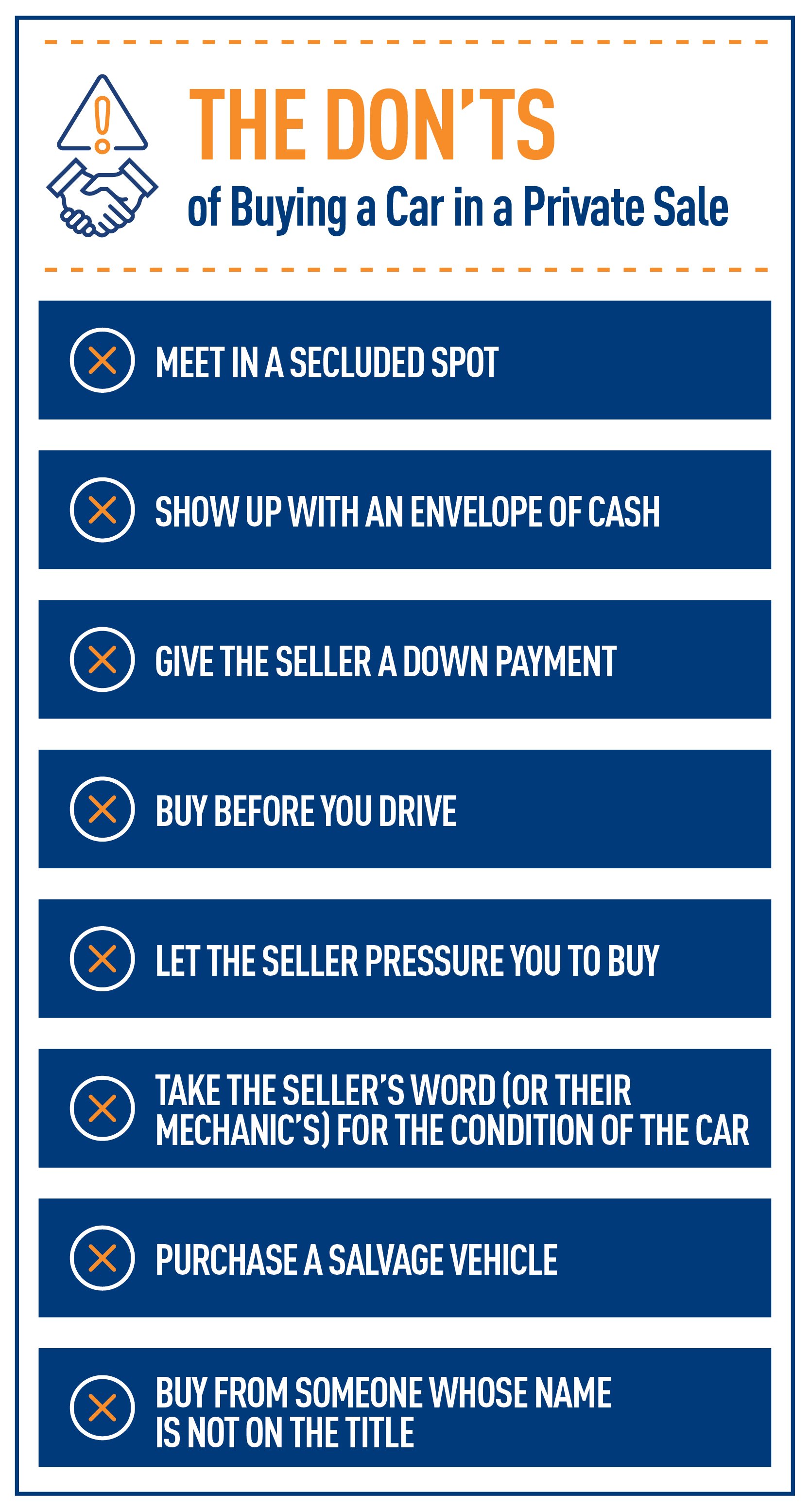
Auto
How to buy a used car from a private party
In this article
- Buying a used car can possibly save you money and offer you bargaining opportunities.
- Before you take the plunge, make search to research the cars fair market value, get a vehicle history report and have it inspected if possible.
- Always use secure payment methods and ensure proper documentation and get insurance before driving away.
So, you’ve finally found what looks like your ideal used car but it’s being sold by a private party. Negotiations on price are just one benefit of the private-buy process. Learn how to buy a used car from a private party.
If you’re looking for a used vehicle, purchasing from a private party has its advantages and disadvantages. If you find the used car of your dreams (or just for right now) and decide to go that route, here are ways to make sure your vehicle purchase goes smoothly and ensure you’re getting a reliable ride for your money.

If you need financing, get preapproved. You can save for a car with some fun money-saving challenges. If you don’t have the savings to pay for your ride in cash, consider financing. You could potentially qualify for an auto loan from a credit union or bank to help you with your purchase.
Tip: You might be able to add an extended warranty program if you finance through a credit union or bank, so be sure to ask about your options.
Research the type of vehicle you want. Do you want a smaller sedan with good gas mileage? An SUV for weekend adventures? Something sporty? A convertible? Peruse sites like Facebook Marketplace, Autotrader.com and eBay Motors to see if you can find a good fit.
When you find a vehicle you like:
- Research its fair market value. Look up the value of the car on Kelley Blue Book or Edmunds.
- Get a vehicle history report. Companies like CARFAX™ and AutoCheck® will research the car’s vehicle identification number (VIN) and share details about ownership, accident history, title status, mileage and more.
- Take the car for a test drive. Bring a friend for safety, meet in a public place and go during daylight so you can see the car well. Ask for proof of insurance before driving the vehicle.
- Get the car inspected by your mechanic or use a mobile service like CARCHEX® or Lemon Squad. It’s worth paying for a vehicle inspection; it can save you thousands of dollars down the road.
- Ask for identification and make sure the name on the ID matches the name on the vehicle title.
When taking a car for a test drive, check for:
- Exterior wear and tear (tires, brakes, rotors, undercarriage).
- Any startup hesitation.
- The car’s performance at highway speeds and in stop-and-go traffic.
- The functionality of electronic devices (locks, lights, power windows, AC/heater, radio, etc.).
How to pay for a vehicle
Meet at your bank or credit union. Never bring cash. Use a cashier’s check or money order and don’t hand over payment until you have the keys in hand. You should also get emissions documents on the car and a bill of sale that includes:
- Year, make and model
- VIN
- Sale price
- Sale date
- Names and addresses of buyer and seller
It’s also smart to line up car insurance before driving away so that you and your new ride are protected.
About that title …
Before buying, make sure the vehicle has a legitimate title. Check the title for:
- Lienholders – a third-party lender with a financial interest in the vehicle. Lienholders need to be paid off before you can assume ownership. If the seller has a loan on the vehicle, you can work with your lender and theirs to obtain payment and transaction details.
- Salvage titles. Salvage vehicles have been considered total losses by an insurance company. Most experts caution against buying them.
- Words or phrases like rebuilt, lemon and factory buyback. Such vehicles have a documented history of mechanical and engineering flaws.
- Out-of-state titles. Unless you can confirm the vehicle’s history, avoid buying a car with an out-of-state title.
If you’re in the market for a used car, truck or SUV, buying from a private seller can be an effective way to get the ride you want at a price you can afford. If you choose to go that route, just be sure to follow our tips to make it a safe and enjoyable buying experience — and hopefully a great driving experience for years to come!
Subscribe to our blog
Fill out the form below to sign up for our blog.
